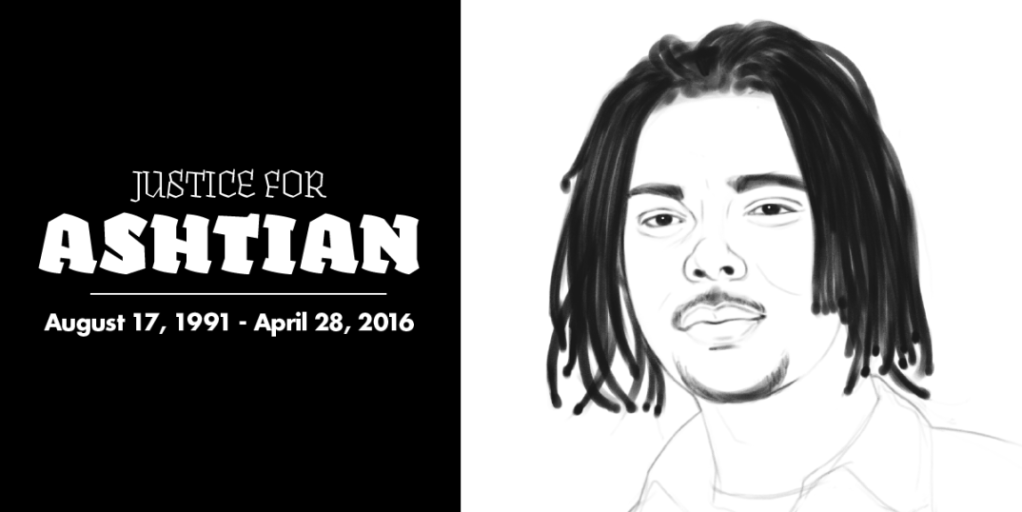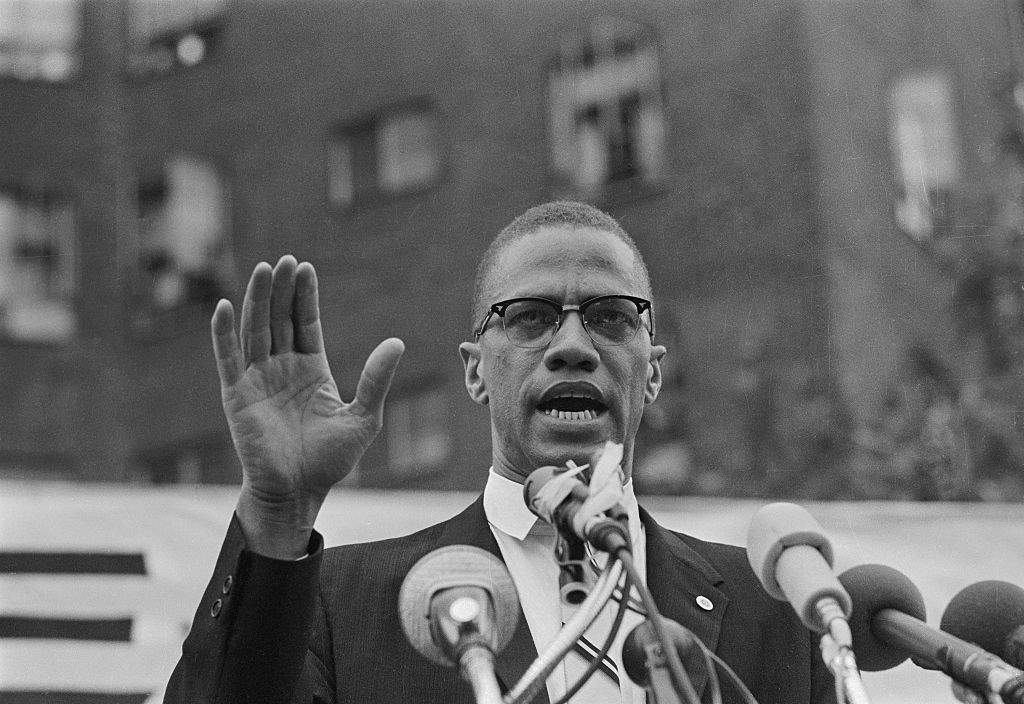
A Harris County constable killed Ashtian Barnes on April 28, 2016, and his family is still fighting for justice. Source: Barnes Family / Barnes Family
Losing a loved one is always challenging. And when they are killed by law enforcement, the loss can be further compounded when justice remains unserved.
Six years ago, a Harris County deputy constable shot and killed 24-year-old Ashtian Barnes during a traffic stop over $6.45 in unpaid tolls on a rental car. In some states, drivers simply receive a notice in the mail for the unpaid amount.
Wednesday, Aug. 17, would have been Ashtian’s 31st birthday. Instead of celebrating another birthday with their beloved brother and son, Ashtian’s mother and sisters are still fighting for a sliver of justice.
In an interview with NewsOne in the spring, Ashtian’s mom Janice Barnes spoke very frankly about the void left after a Houston constable took her son’s life.
“There is no way to forewarn someone of how to accept this,” Janice Barnes said. “We teach our kids what to do and how to behave at a traffic stop. But it’s the officer with the gun at that point. Now we victims at home.”

Source: Barnes Family / Barnes Family
As a Black mother raising Black children into young adulthood, this story hit close to home when I first learned about it. My 18-year-old son had just begun driving solo when I chatted with Ashtian’s family.
The fear every time he leaves to see friends or run an errand never resolves until he is back home. Like Ashtian, he is my only son and very much into all kinds of sports. Janice Barnes said her son was proud to be a big brother and protector of his younger sisters. A close-knit family, the dynamic has never been the same without Ashtian.
“All we have is each other at this point,” Janice Barnes said. “We just try to keep each other together.”
Ale’dra Barnes, one of Ashtian’s sisters, shared that her brother was super protective but had a great sense of humor. She said there was nothing her brother wouldn’t have done for his sisters.
While covered locally, Ashtian’s case never broke through on the national stage, but it is no less important. In the six years since Ashtian was killed, other jurisdictions have grappled with limiting police interactions during traffic stops.

Source: Barnes Family / Barnes Family
“We were advocates before this,” Ale’dra Barnes said. “Sandra Bland, we were there. We were heartbroken like everyone else. And then this happens to us, and we were almost in disbelief.”
But members of his family and community never gave up fighting for the best version of justice that can be had after a life is taken. A nonprofit civil rights law firm, the Texas Civil Rights Project, stepped in to help the Barnes family get some semblance of justice through a lawsuit.
The organization is also working closely with the Barnes family in advocating for several policy changes to improve actual public safety in Houston. Last summer, the Texas Civil Rights Project launched the Justice for Ashtian Campaign.
According to the Texas Signal, the constable used the pretense of marijuana odor to escalate the encounter and, in less than two minutes, shot Ashtian at close range. This is over $6.45 in unpaid toll charges on a rental car. To Ashtian’s family and loved ones, his life was worth so much more than a few dollars.
“We envision a world where police should not have the authority to terminate life to collect debts,” said former staff attorney Peter Steffensen. “If we can end that practice, we believe we can achieve a safer world and ensure that stories like Ashtian’s are a thing of the past.”
And while Texas law does not prohibit “marijuana odor” pretextual searches, some counties are taking steps to address the issue. Chris Rivera, outreach coordinator for the Texas Civil Rights Project’s Criminal Justice Program, and colleagues want Harris County to adopt similar preventative measures.
“Ultimately, we want the disarmament of traffic police, and we also are advocating for eliminating minor traffic fines and fees and warrants such as broken taillight, expired driver’s license and dark tint,” Rivera explained. “And also eliminate the odor of marijuana and marijuana possession as a lawful basis for police intervention.”
In a letter to the Houston City Council, the Justice for Ashtian Campaign outlined several issues with traffic stops. According to the data cited, most drivers stopped in Houston were Black and Latino. Black drivers were over 40 percent of traffic stops despite being only 22.8 percent of the city’s population. Black drivers are also 63.81 percent of those arrested during traffic stops and 64.8 percent of the use of force complaints.
Nationwide, police have killed more than 6,400 people since 2015 alone. And according to the Mapping Police Violence project, the number of people killed by police has increased each year since Ashtian was killed in 2016. And charges against officers, let alone convictions remain extremely rare.
“Ashtian Barnes would be here today if we had disarmed traffic police patrolling the streets,” Rivera said. “And it’s important we consider his life and what happened and know there’s a better solution.”
SEE ALSO:
‘Jim Crow Never Left’: Black Residents Sue Mississippi Police Department For Civil Rights Violations
The post Six Years After A Harris County Constable Killed Ashtian Barnes, His Family Fights For Justice appeared first on NewsOne.

